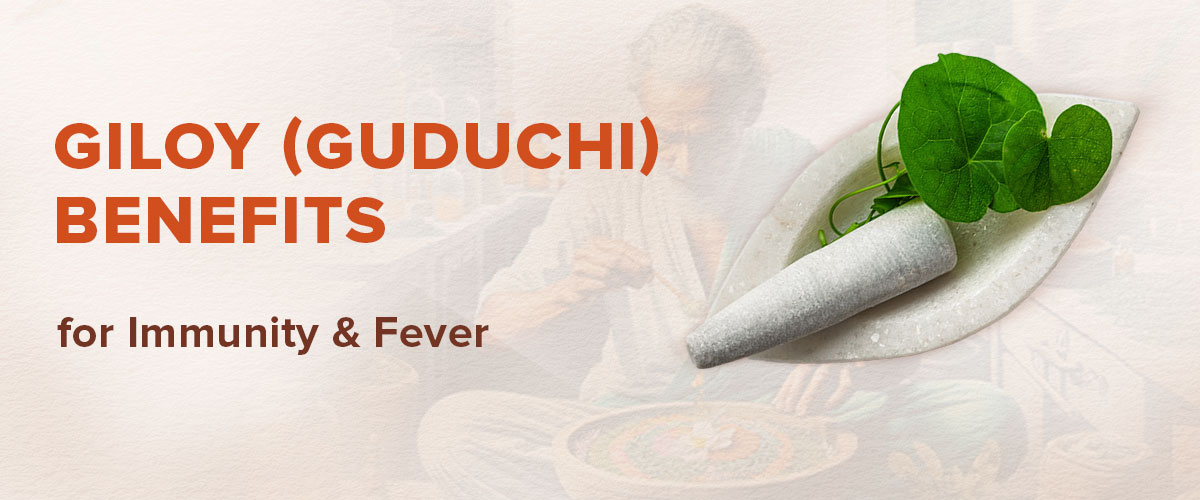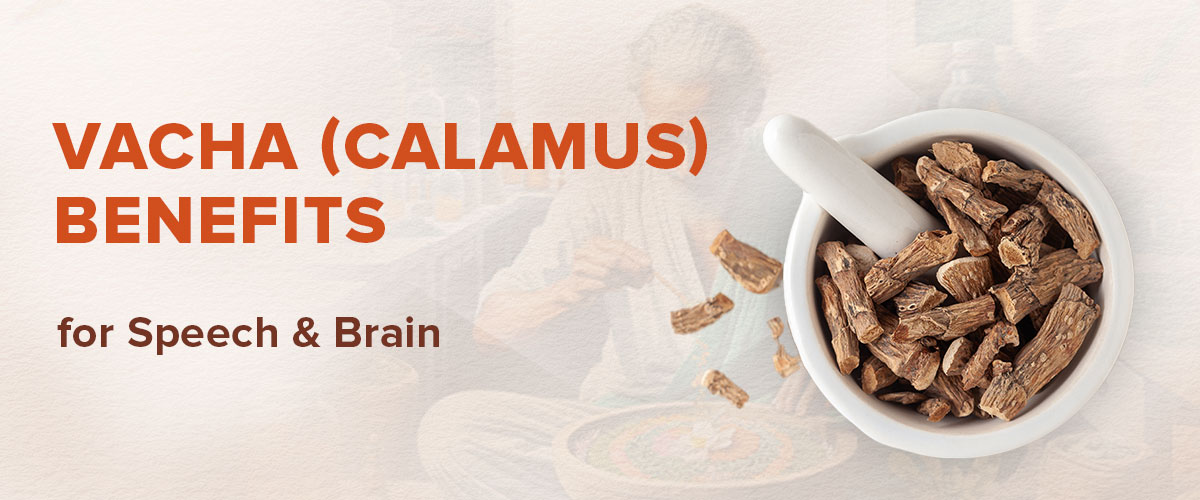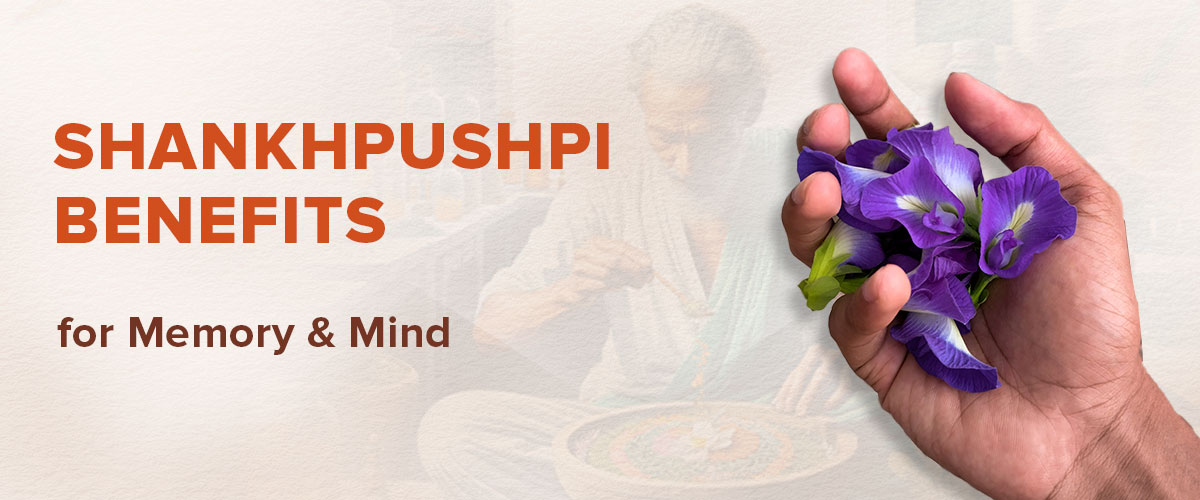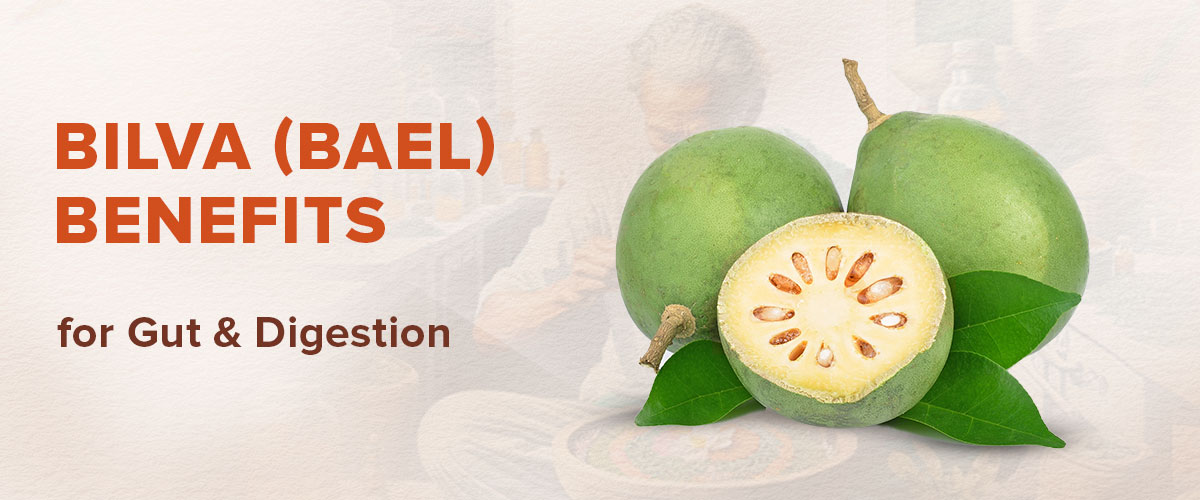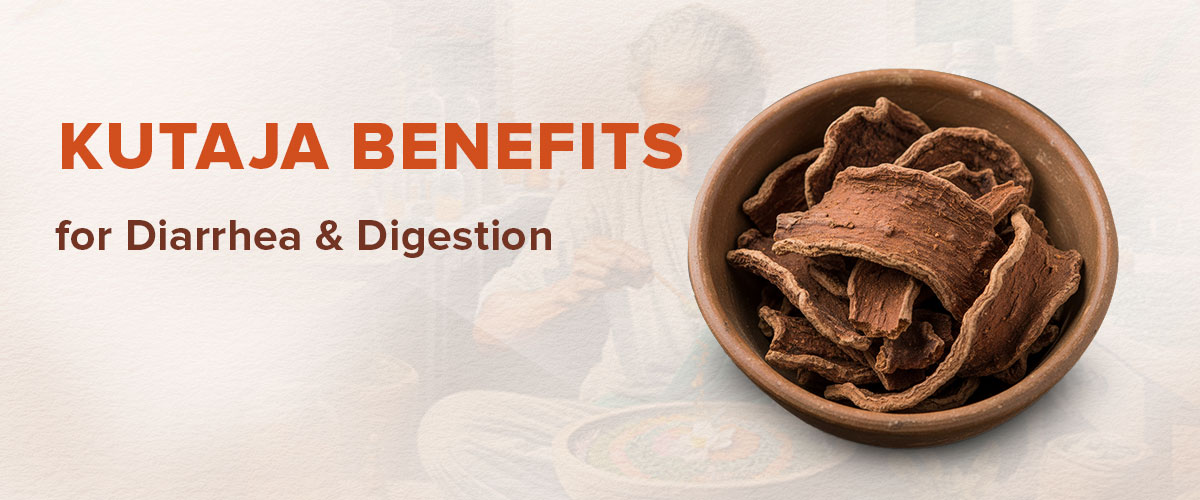Cardamom: Benefits, Uses, and Healing Properties
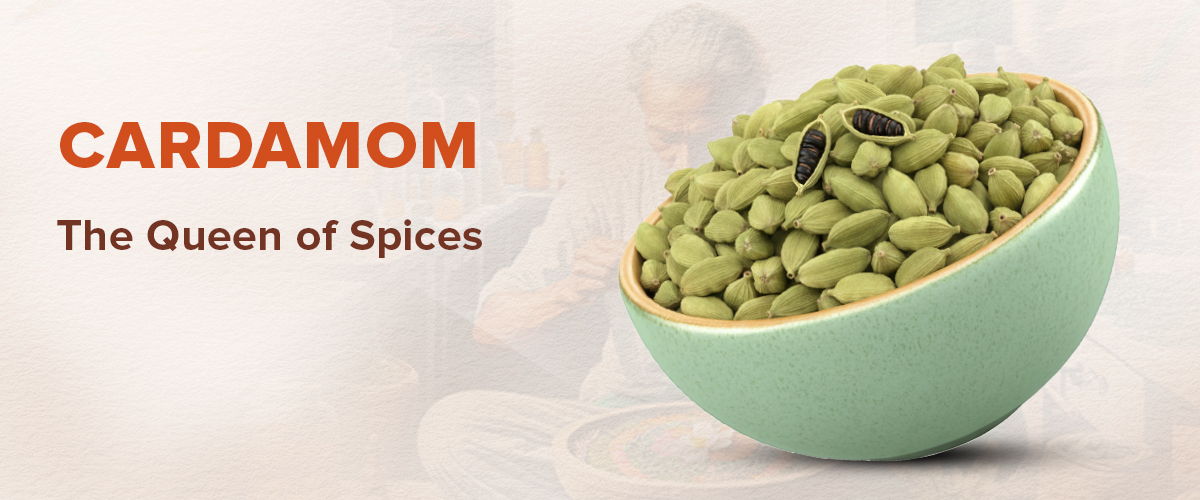
Cardamom is a fragrant spice which we usually use in chai, desserts, or other Indian food. In English, it's called cardamom and in botany, it's Elettaria cardamomum. People call it the "Queen of Spices" not just because of how it smells and tastes, but also because it has a long history of healing diseases.
Ayurvedic scholars like Charaka and Sushruta wrote about using cardamom thousands of years ago. And it is still important today.
Modern medicine is also looking into these cardamom benefits. In a small clinical study of 20 adults with early-stage high blood pressure, taking 3 grams of cardamom powder every day for 12 weeks raised their blood's antioxidant levels by 90% and lowered both systolic and diastolic blood pressure. This helps us realise that Ayurveda’s claims about cardamom are indeed true and this simple herb can help us live a healthy life in many ways. Let us find out how.
What is Cardamom & Its Ayurvedic Properties?
Cardamom is a powerful healing herb that has been used in Ayurveda for a long time. Ayurveda has used Ela in the past for helping with indigestion, nausea, bad breath, and heart and lung health.
Let's break it down into simple terms:
- Taste (Rasa): Cardamom has a sweet and slightly spicy taste. Ayurveda says that this kind of rasa helps to balance the Vata and Kapha doshas. That means that if you're feeling bloated or heavy, cardamom can help you feel lighter.
- Characteristics (Guna): It is thought to be light (laghu) and dry (ruksha). These traits make it easier for your body to break down and absorb food. Adding a little cardamom to your food can make a big difference if you often feel tired after eating.
- Potency (Virya): Cardamom has a cooling (Sita) effect. This means it relaxes the body, lowers internal heat, and eases burning. This is great if you struggle with acidity or heartburn.
- Post-Digestive Effect (Vipaka): After you eat cardamom, it has a sweet (Madhura) effect. This helps your body get the nutrients it needs, calms your system, and improves your digestion over time.
Cardamom Benefits for Your Health
Cardamom is a safe and effective treatment in both modern science and Ayurveda. Let's look at how this small green herb can help your health.
Good for Cough and Cold
Ayurvedic View: In Ayurveda, cough is usually caused by an imbalance in the Kapha dosha, which causes mucus to build up in your chest and throat. Cardamom helps balance Kapha and gets rid of extra mucus if you are struggling from the flu or seasonal cold.
Modern View: Cardamom is a natural expectorant and antibacterial agent. It helps you breathe easier by loosening mucus and pushing it out of your body. A spoonful of cardamom powder mixed with honey can help you feel better.
Soothes Sore Throat
Ayurvedic View: Cardamom's Sita (cooling) and Rasayana (healing) properties can help reduce inflammation and calm irritation if your throat is itchy or painful.
Modern View: Cardamom may help fight the bacteria that cause throat infections because it has anti-inflammatory and antimicrobial properties. Cardamom tea can help you feel better if you drink it 1-2 times a day.
Helps with Digestion and Gas
Ayurvedic View: Ayurveda believes that cardamom has the Deepan (appetiser) property. It helps your digestive fire, keeps Vata and Pitta in check, and stops gas and bloating.
Modern View: Cardamom is said to help with gas and indigestion as per modern science. It makes your stomach muscles relax and keeps your digestive system healthy.
Controls High Blood Pressure
Ayurvedic View: Rakta Gata Vata, or disturbed blood flow, is what Ayurveda says causes high blood pressure. Cardamom is a Hrudaya (heart tonic) that helps blood flow in a healthy way.
Modern View: Research shows that taking 3 grams of cardamom every day can lower blood pressure. It helps your heart by flushing out extra water and acting as an antioxidant and diuretic.
Supports Appetite and Reduces Nausea
Ayurvedic View: If you don't want to eat or feel like throwing up, the nice smell and Deepan nature of cardamom can help you feel better and get your appetite back.
Modern View: Cardamom can help with nausea and vomiting because it has a mild sedative effect. That's why people often use it when they travel or are pregnant (but always talk to a Jiva doctor first).
Cardamom for Specific Health Conditions
Beyond everyday relief, cardamom has also shown promise in helping with certain long-term or less talked-about conditions. Let’s look at a few health problems where cardamom benefits truly help.
Cardamom for Bad Breath and Oral Health
You must have noticed how fresh your mouth feels after chewing on a cardamom pod. That is because cardamom kills bacteria in your mouth. Ayurveda also thinks of it as a breath-freshener because it tastes sweet and is light. Research shows that it can lower the number of germs that cause cavities and bad breath.
Cardamom for Anxiety and Mood
Are you feeling anxious or stressed? Cardamom might help you relax. Ayurveda calls cardamom a Sattvic spice, which means it helps with mental clarity and peace. It balances Vata, which is often linked to anxiety and not being able to sit still.
Cardamom for a Healthy Liver
Your liver works hard to keep you healthy, and cardamom can help it do its job better. Recent studies have shown that cardamom extract may help the liver work better and lower inflammation in the liver. It protects liver cells because it has antioxidant and detoxifying properties.
Cardamom for Stomach Ulcers
Do you often feel like your stomach is burning? Studies suggest cardamom may help reduce the size of ulcers and protect your stomach lining. It also fights bacteria like H. pylori, which is known to cause ulcers.
Cardamom for Asthma and Breathing
Cardamom can help open up your airways if you have asthma or have trouble breathing when you have a cold. Breathing can become easier if you smell it or drink cardamom tea.
Cardamom for Weight Management
Cardamom may help you lose weight by speeding up digestion and making your stomach less bloated. Some studies even show that using it regularly can make your waist smaller.
Who Should Use Cardamom?
Cardamom is safe, versatile, and works gently on your body, making it suitable for many age groups and health needs. Let’s see how cardamom benefits women, kids, and older adults in different ways.
Cardamom for Women
Cardamom can help if you're feeling bloated, moody, or tired. It helps with digestion and relaxation, which is helpful during your period when your digestion slows down or your stress levels go up. It also helps fight body odour and bad breath in a natural way. In Ayurveda, cardamom is thought to be a mild aphrodisiac that can boost mood and energy.
Cardamom for Kids
Cardamom can also help kids, but only in small amounts that are right for their age. A little cardamom in your child's milk or meals can help them feel better if they often have gas, stomach aches, or bad breath.
Cardamom for Older People / Seniors
Cardamom can help seniors with their digestion, blood pressure, and memory in a gentle way. As digestion weakens with age, cardamom boosts appetite, reduces gas, and helps manage blood pressure naturally. It can also help you sleep better.
Can Cardamom Be Taken with Other Medicines?
Cardamom is natural, but just like any herb, it’s important to be careful when mixing it with modern medicines. You should talk to a Jiva certified doctor before adding cardamom to your routine if you take other medicines every day, especially for high blood pressure, liver problems, or bleeding disorders.
Why be careful?
- Cardamom may increase the effect of blood thinners, which could make bleeding more likely.
- It could change how your liver breaks down medicines, especially if you're already taking drugs that stress your liver.
- People who have gallstones should avoid large amounts of cardamom, as it might trigger discomfort or pain.
It's usually safe to use cardamom as a spice in food or tea. But if you're thinking about taking capsules or concentrated extracts, you should always talk to a Jiva certified doctor first.
Is Cardamom Safe? Who Should Avoid It?
When used in small amounts, cardamom is usually safe, especially when added to food or tea. But like any other herb, it might not work for everyone all the time. It's important to know when to be careful if you want to take cardamom in larger amounts or as a supplement.
Side Effects of Cardamom
Some people may experience:
- Mild stomach upset or nausea
- Loose motion if taken in excess
- Skin rashes or allergic reactions (rare)
- Drowsiness in very sensitive individuals
If you have a weak digestive system or suffer from acidity often, start with a very small amount and see how your body reacts. For personalised guidance, always speak to a Jiva certified Ayurvedic expert first.
Cardamom vs Other Ayurvedic Herbs
Cardamom is often compared with other commonly used Ayurvedic herbs for digestion, mood, and respiratory health. Let us understand how it compares to other similar herbs.
Cardamom vs. Ginger (Shunthi)
|
Feature |
Cardamom |
Ginger (Shunthi) |
|
Best Use |
Cough, digestion, bad breath |
Nausea, indigestion, joint pain |
|
Effect on Mind |
Calming, improves clarity |
Stimulating, energising |
|
Effect on Body |
Balances Vata & Kapha |
Balances Vata & Kapha, may increase Pitta |
|
Taste (Rasa) |
Sweet, slightly pungent |
Pungent |
|
Ideal For |
Sensitive stomachs, heat conditions |
Cold conditions, weak digestion |
Cardamom vs. Fennel (Saunf)
|
Feature |
Cardamom |
Fennel (Saunf) |
|
Best Use |
Digestion, cough, mental clarity |
Bloating, acidity, fresh breath |
|
Effect on Mind |
Calms and clears the mind |
Soothes and relaxes the mind |
|
Effect on Body |
Balances Kapha & Vata |
Balances Pitta & Vata |
|
Taste (Rasa) |
Sweet, slightly pungent |
Sweet |
|
Ideal For |
Respiratory + digestive issues |
Gas, acid reflux, breastfeeding support |
Conclusion
Even though cardamom is small, it is very good for healing. This simple spice can help you with your digestion, clear your chest, freshen your breath and calm your mind. Ayurveda has used it for thousands of years, and even modern science is starting to see how useful it is.
But just like no two people are the same, no two bodies react to herbs in the same way. This is why cardamom or any other Ayurvedic remedy works best when it is made just for you. So, if you want to add cardamom to your daily routine, consult a Jiva expert for help.
Call our Jiva certified doctor at 0129-4264323 today for personalised advice on any health issue you may be facing.
FAQs
Does cardamom have any healing properties?
Yes, cardamom can help heal a lot of problems naturally. It can help with bad breath, nausea, coughs, and even high blood pressure. It also calms the mind and settles the stomach.
Is cardamom better than cinnamon?
In their own ways, both are good for your health. Cinnamon is better for controlling blood sugar, while cardamom is better for digestion and breathing problems.
What happens to our bodies when we eat cardamom every day?
Eating cardamom on a regular basis can help your heart, digestion, and breath, and it can even help with bloating.
What's the best way to take cardamom?
Adding cardamom to your tea, warm water, or food is the easiest way. You can also chew it after meals or mix the powder with honey to get rid of gas or cough quickly.
Who should not use cardamom?
Talk to a Jiva doctor before using too much cardamom, especially if you have gallbladder stones, are on blood thinners, or have liver problems. It's best to use it with the help of a Jiva expert.
Does cardamom help you lose weight?
Yes, cardamom may help you lose weight by making your digestion better, reducing bloating, and helping your body burn fat more quickly. Adding it to your daily tea or food can help you lose weight, but it's not a magic fix.
Is cardamom good for your liver?
Cardamom has a lot of antioxidants that keep your liver safe. It might help with detoxification, reduce inflammation, and speed up fat metabolism. If you feel full after eating, a little cardamom can help your liver work better.



 Prev
Prev





